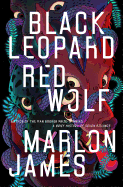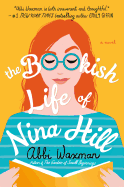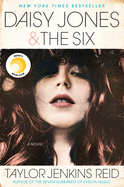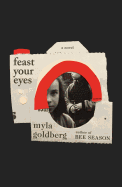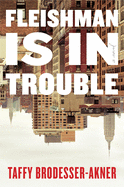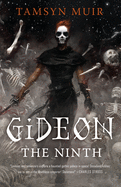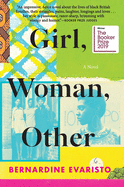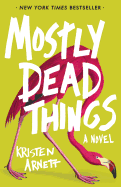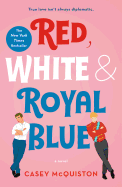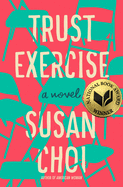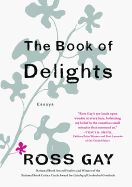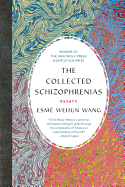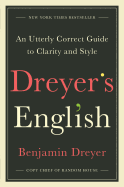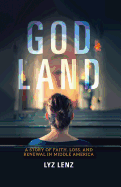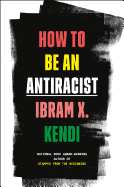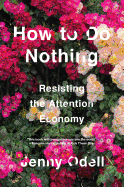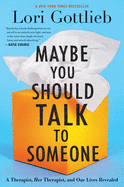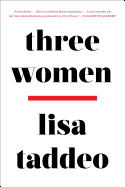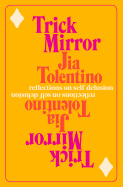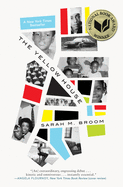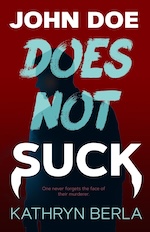Shelf Awareness's Best Books of 2019
Out of the thousands of books published this year, how to choose just 10 fiction titles and 10 nonfiction? Some passionate arguments ensued, but we're all still friends and, ultimately, book lovers. (See our reviews below.)
FICTION
Black Leopard, Red Wolf by Marlon James (Riverhead)
The Bookish Life of Nina Hill by Abbi Waxman (Berkley)
Daisy Jones & The Six by Taylor Jenkins Reid (Ballantine)
Feast Your Eyes by Myla Goldberg (Scribner)
Fleishman Is in Trouble by Taffy Brodesser-Akner (Random House)
Gideon the Ninth by Tamsyn Muir (Tor)
Girl, Woman, Other by Bernardine Evaristo (Grove)
Mostly Dead Things by Kristen Arnett (Tin House)
Red, White & Royal Blue by Casey McQuiston (St. Martin's)
Trust Exercise by Susan Choi (Holt)
NONFICTION
The Book of Delights by Ross Gay (Algonquin)
The Collected Schizophrenias by Esmé Weijun Wang (Graywolf)
Dreyer's English by Benjamin Dreyer (Random House)
God Land by Lyz Lenz (Indiana Univ. Press)
How to Be an Antiracist by Ibram X. Kendi (One World)
How to Do Nothing by Jenny Odell (Melville House)
Maybe You Should Talk to Someone by Lori Gottlieb (Houghton Mifflin Harcourt)
Three Women by Lisa Taddeo (Avid Reader)
Trick Mirror by Jia Tolentino (Random House)
The Yellow House by Sarah M. Broom (Grove)
Shelf Awareness's Best Books of 2019
Book Review
Fiction
Black Leopard, Red Wolf
by Marlon James
Marlon James's fourth novel channels his interests in history and the supernatural into a full-blown fantasy epic. Black Leopard, Red Wolf, the exciting first installment in the Dark Star trilogy, more than earned its spot as a National Book Award finalist. It takes place in an ancient Africa where gods and mythical creatures walk among humans. The protagonist, appropriately named Tracker, earns a living tracking down lost people with his extraordinary sense of smell. Tracker is hired into a motley band assembled to find a missing boy, but the quest is not as simple as it seems, taking Tracker on a series of journeys across James's inventive, magnificently realized world.
Black Leopard, Red Wolf is preoccupied with storytelling. The entire novel essentially unfolds as a story being told by Tracker to a mysterious Inquisitor, but it also contains tales within tales in which Tracker's companions share their own histories. The experience of reading Black Leopard, Red Wolf might be best compared with listening to stories around a fire in the late, dreamlike part of the night. James's book is something fresh and new and completely unforgettable. --Hank Stephenson, manuscript reader, the Sun magazine
Riverhead,
$30,
hardcover, 640p., 9780735220171
The Bookish Life of Nina Hill
by Abbi Waxman
Abbi Waxman (Other People's Houses) applies her signature wit and warmth to bookseller and consummate introvert Nina Hill's journey in her third novel, The Bookish Life of Nina Hill. Mostly happy with her life in Los Angeles, Nina lives with her cat, Phil, in a small guest cottage arranged to her liking and earns a living working at Knight's, an independent bookstore nearby. When she's not selling books or reading them, she spends her evenings killing it at trivia competitions.
But when her estranged father dies suddenly, Nina stands to gain both a potential inheritance and a large, unruly extended family that she isn't sure she wants. At the same time, Nina meets Tom, a fellow trivia wiz who might just prove interesting--and sexy--enough for Nina to embark on an actual relationship.
Waxman has the gift of writing wisecracking, breezy novels that nevertheless contain some real growth for her characters. In this case, Nina is forced to re-examine the carefully constructed boundaries of her introverted life. Sunny and witty, and peppered with literary references, Nina's story is a celebration of introversion, a love letter to independent bookstores and an insightful meditation on family and belonging. --Katie Noah Gibson
Berkley,
$16,
paperback, 352p., 9780451491879
Daisy Jones & The Six
by Taylor Jenkins Reid
Taylor Jenkins Reid's Daisy Jones & The Six opens by noting this is the only official account of the titular band's history and dramatic breakup mid-tour in 1979, an event that has remained a mystery for 40 years. What follows is so realistic and rich in details, readers might forget the band is fictional.
In the early 1970s, Daisy is a wild child and naturally gifted singer who begrudgingly agrees to work with Billy Dunne, frontman of a rock band called The Six. Billy has written a song his producer says should be a duet with a female vocalist. The result is combustible chemistry and a hit that begs for more collaboration between the two. When Daisy is invited to join the band, she's a grenade thrown into the mix, and sparks fly, both good and bad.
Daisy Jones & The Six is an oral history about more than sex, drugs and rock 'n' roll, though there's plenty of that. This novel cracks open the creative process and shows how much it costs sometimes to make art that resonates. --Elyse Dinh-McCrillis, blogger at Pop Culture Nerd
Ballantine,
$27,
hardcover, 368p., 9781524798628
Feast Your Eyes
by Myla Goldberg
Myla Goldberg (Bee Season) goads readers at the outset of her fourth novel: "Feast your eyes, America," in the enthralling, jaded voice of Samantha Preston. Daughter of the acclaimed and controversial mid-century street photographer Lillian Preston, Samantha is the only one who can provide the necessary context for her mother's posthumous retrospective. But as the subject of Lillian's most scandalous series, she's conflicted about filling the role of curator.
Constructed as a gallery catalogue, yet notably without photos, Feast Your Eyes is a marvelous feat of the imagination. Still processing the residual trauma of her childhood notoriety, Samantha expounds on her mother's 118 photos in dialogue with Lillian's friends, lovers and diaries. Goldberg conjures unseen photographs with astounding skill, describing a body of work that captures Lillian's era as readily as it speaks to the author's own. Art can be a dangerous endeavor for creator and viewer alike; the greater the response, the more effective the piece. Feast Your Eyes inhabits this tension with immense grace and empathy, challenging the perennial urge to stifle what doesn't conform to a given community's standards.
The consistently ambitious Goldberg has once again delivered a remarkable piece of literature. Feast your eyes, indeed; there is much to digest. --Dave Wheeler, associate editor, Shelf Awareness
Scribner,
$28,
hardcover, 336p., 9781501197840
Fleishman Is in Trouble
by Taffy Brodesser-Akner
Longlisted for the National Book Award, this hilarious debut novel hinging on a dissolving Manhattan marriage belongs on a shelf with books by Bellow, Roth and Updike. Wildly successful Manhattan talent scout Rachel Fleishman has a history of not coming home on time. But when she doesn't come back from a yoga retreat and won't return her husband Toby's calls, he gets mad. Not only must Toby juggle his work obligations with taking care of their two kids, he has to convince them that their mother's extended absence is job-related.
Rachel and Toby, a doctor who keeps bankers' hours, have been separated for about a month, which was his idea. Until now, the separation has been working well for Toby, both sexually (he's a hit on dating apps) and in terms of pride (he felt that Rachel looked down on him for his relatively modest salary). Just when the reader is squarely on Team Toby comes the howlingly funny third act, which works a certain miracle: it makes Rachel sympathetic.
Fleishman Is in Trouble overlays Taffy Brodesser-Akner's wickedly well-observed consideration of modern coupledom with a feminist sensibility. --
Nell Beram, author and freelance writer
Random House,
$27,
hardcover, 384p., 9780525510871
Gideon the Ninth
by Tamsyn Muir
In her debut novel, Tasmyn Muir positions her protagonist, Gideon Nav, amid foreboding gothic spaces and reanimated skeletons. It would be a stretch to describe Gideon as grounded--her awe-inspiring talent as a swordswoman is on repeated display--but she is perfectly happy to puncture the stuffy, self-serious air of her companions with crude jokes, puns and even a well-timed "that's what she said."
The novel's action kicks off when Gideon finally receives a chance to leave her oppressive home planet as a cavalier, a kind of bodyguard. The Emperor has summoned representatives from the nine houses--a necromancer and a cavalier from each--to a huge, decaying palace where the houses will vie against each other to discover ancient necromantic secrets and attempt to become Lyctors, demigod-like members of the Emperor's inner circle. It's complicated. Thankfully, Muir grounds the strangeness in a few familiar conceits. When necromancers and cavaliers start to die in mysterious fashion, the novel begins unexpectedly to resemble a locked-room mystery, or perhaps even a particularly demented slasher movie.
When it comes to epic fantasy, it's difficult to imagine a more purely fun read than Tasmyn Muir's Gideon the Ninth. --Hank Stephenson
Tor,
$25.99,
hardcover, 448p., 9781250313195
Girl, Woman, Other
by Bernardine Evaristo
Accomplished Anglo-Nigerian writer Bernardine Evaristo (Mr. Loverman) won the 2019 Booker Prize for this marvelous epic of black womanhood and queer identity in Britain. Girl, Woman, Other is a sprawling narrative that orbits the opening night at London's National Theatre for the breakout play by longsuffering lesbian playwright Amma Bonsu. Amid this triumph, 11 other female and nonbinary characters form a chorus line of intersecting lives shaped by years of racial and gendered progress.
Clashes in outlook and ideology slip and slide throughout the rapid-fire, interlocking stories of dynamic, ambitious people like Amma's best friend and fellow radical, Dominique, and Yazz's guest lecturer, Morgan. Blackness, womanhood, queerness--these concepts become simultaneously clearer and more individualized as each character's circumstance is cemented in time, reaching back generations to Morgan's great- and great-great-grandmothers. Evaristo maintains an assured and graceful hand, though, never faltering in her ever-widening scope. And where social issues could grow prickly, Evaristo turns around with disarming generosity and good faith.
Girl, Woman, Other gauges progress with a wide generational lens, converging back on itself with a measured sense of satisfaction and expectation for what lies ahead. --Dave Wheeler, associate editor, Shelf Awareness
Black Cat/Grove,
$17,
paperback, 464p., 9780802156983
Mostly Dead Things
by Kristen Arnett
This novel debuted this summer on the New York Times bestseller list, a first for the indie press. The prose of Mostly Dead Things is a bed of roses trapped under barbed wire, beauty beneath a hardened exterior. How appropriate for the narrator Jessa Morton, a taxidermist who has long held back her feelings from her dysfunctional family, even before her father shot himself in the shop that Jessa now runs. It's only when her mother begins making provocative sculptures out of the store's animals that Jessa is forced to open herself up and confront her past in all its heartbreak.
In her first novel, Kristin Arnett writes with keen perception and clarity throughout, not just of grief and old wounds, but of the working-class Florida landscape in which the Mortons live. This is an exquisitely painful and tender story, compassionate and understanding of its characters and their myriad flaws, even Brynn, the woman who Jessa and her brother, Milo, both loved--until she ran from them.
Mostly Dead Things is a book of body and soul. Arnett is a talented and original writer, and everybody paying attention to her work will be eagerly awaiting whatever else she has in store. --C.M. Crockford, freelance reviewer
Tin House,
$24.95,
hardcover, 354p., 9781947793309
Red, White & Royal Blue
by Casey McQuiston
Casey McQuiston dazzles in her lively debut, Red, White & Royal Blue. With clever comedic timing and a self-possessed charm, she constructs rich sexual tension between two young men who ostensibly hate each other. Alex, the First Son of the United States, and Henry, the Prince of Wales, are forced into a chummy charade to mitigate blowback after an embarrassing scrap at a royal wedding. In private, however, they harbor petty grudges, sniping at one another until they eventually let their guards down, texting more and more. And more. Their growing bond is heartwarming and organic. Who understands the pressures and boundaries of their lives better than each other? And while Henry's sexuality has been stifled by family decorum, like so many before him, Alex's creeps up on him in the way these things can for those whose attractions are more fluid.
This is where Red, White & Royal Blue truly shines. Sorting out one's sexuality is hard enough without being under constant public scrutiny. Passion characterizes every moment of this smart, mischievous, gratifying and sensitive novel. The punch lines are deft, the sex is steamy and the romance is stirring. This rom-com has generated buzz all year long, with critics everywhere raving and a film adaptation already in the works. --Dave Wheeler, associate editor, Shelf Awareness
St. Martin's Griffin,
$16.99,
paperback, 432p., 9781250316776
Trust Exercise
by Susan Choi
In this truly innovative novel--winner of the 2019 National Book Award for Fiction--Susan Choi challenges her characters--and readers--with an elaborate trust exercise set at a prestigious high school. Here, teens compete for roles both onstage and off, against the backdrop of 1980s Anytown, America. They envy their peers and idolize their drama teacher as they experience the life-shaping trials and tribulations of young adulthood. Readers are led along the propulsive narrative path, up the highest of highs and down the lowest of lows, then thrown off course when Choi twists Trust Exercise in unexpected, winding ways. Her inclusive approach to the stories of all the teens--rich, poor, stars and nobodies--traces their trajectories well into the future.
And it's that vast scope that forces the audience to question everything they think they know about memory and how it's stored. Including a complex examination of reality versus fantasy, Choi encourages readers to lay private memories next to the events of Trust Exercise, in order to compare the revelations of the plot with their own hard-earned insights into life. We at Shelf were early champions of this book and were excited to see it as a finalist for the National Book Award. --Jen Forbus
Holt,
$27,
hardcover, 272p., 9781250309884
Nonfiction
The Book of Delights
by Ross Gay
Between his 42nd and 43rd birthdays, Ross Gay--a National Book Award finalist for poetry for his Catalog of Unabashed Gratitude--decided to capture as many delights as possible, and spin them out into a series of "essayettes." The result, The Book of Delights, is a kaleidoscopic collection of joy.
Gay renders his delights in joyous, rambling prose: the whirring wings of a hummingbird, the Rothko-like effect of a weathered wooden backboard, the multi-layered affection of nicknames. In multiple essays, he addresses the complications of seeking and relishing delight as a black American, from the ritual of what he calls "The Negreeting" to the fact that his celebration of delight, as a black man, is a deliberate stand against "the commodification of black suffering." As the joys pile up--there's even an essay on "stacking delights"--Gay finds his delight radar growing more sensitive, his eyes and soul ever more attuned to good, to light, to wonder, to joy. Readers may find themselves pulling out pen and paper (another delight) to capture their own enchantments, or--at the very least--relishing every page of Gay's warm, wise, utterly captivating collection. --Katie Noah Gibson, blogger at Cakes, Tea and Dreams
Algonquin,
$23.95,
hardcover, 288p., 9781616207922
The Collected Schizophrenias: Essays
by Esmé Weijun Wang
Esmé Weijun Wang (The Border of Paradise) was diagnosed with bipolar-type schizoaffective disorder in 2013. This diagnosis, which replaced her longtime diagnosis of bipolar disorder, explained the periodic symptoms of psychosis, such as hallucinations and delusions, that she first began experiencing years before as a student at Yale. Wang found some comfort in her diagnosis (it provided "a framework--a community, a lineage"). She also understood--from her own experience and from her years working as a lab researcher at Stanford--that its diagnostic criteria are inadequate in capturing the complexity, contradictions and the lived experience of schizoaffective disorder or another of "the schizophrenias."
The Collected Schizophrenias is Wang's attempt to do what the DSM-5--the "clinical bible" of mental disorders--cannot. In 13 remarkably well-researched, intimately detailed and moving essays, she guides readers on a tour of her own psychological and emotional terrain, grounded in the clinical and cultural context that has shaped it. The essays range from the investigative to the meditative to the confessional--most of them all three at once. Wang's search for unity may be elusive, but her collection organizes the confusion, terror and complexity of her experience into an imperfectly cohesive, profoundly illuminating whole. --Hannah Calkins, a writer and editor in Washington, D.C.
Graywolf Press,
$16,
paperback, 224p., 9781555978273
Dreyer's English: An Utterly Correct Guide to Clarity
by Benjamin Dreyer
There are many ways to write, but to communicate clearly requires consistency in style. Lucky for readers of Dreyer's English, Benjamin Dreyer, copy chief of Random House, has something more: panache. Although unabashedly opinionated, Dreyer never claims to have all the answers. In fact, he openly discusses instances in which he has come to recognize his own errors over time, and guides readers through the issues he frequently addresses, while conceding much else to higher powers like Merriam-Webster and the Chicago Manual of Style.
The mechanics of writing are consistently fun with Dreyer at the helm. Whether addressing punctuation, spelling, cliché or any number of pitfalls a writer or editor may encounter, he is ready with a sharp, memorable example. Dreyer also makes clear that one can carry peeves and peccadilloes right off a cliff if one isn't careful. In a footnote, he questions a certain magazine's feverish use of diaereses and hyphens: "If you're going to have a house style, try not to have a house style visible from space."
We were pleased that this treatise on language appeared on the New York Times Bestseller List; there's hope for social discourse. Even as language continues to evolve, let's hope Dreyer's English never goes out of style. --Dave Wheeler, associate editor, Shelf Awareness
Random House,
$25,
hardcover, 320p., 9780812995701
God Land: A Story of Faith, Loss, and Renewal in Middle America
by Lyz Lenz
Journalist Lyz Lenz watched both her church and her marriage fall apart in the wake of the 2016 election.
In God Land, her first memoir, Lenz incisively weaves her own story with the stories of people she meets in towns and churches across the American heartland. She tells of her idealism in helping to establish a new church in Marion, Iowa, then her frustration at being silenced by her friends and her husband, as a woman who often held unpopular opinions. She explores the contradictory nature of belief in a stubborn, harsh, often isolating land. Lenz trains her keen journalistic eye on everyone she meets: the traveling pastors who often disagree with their congregants but feel called to serve them; the farmer who diffidently admits to finding God in his fields; the elderly woman who has lived and worshiped in the same small town for decades. They emerge as complex people, full of faith and doubt, hurt and hope--not unlike Lenz herself.
Her sharp, insightful prose and deep compassion help illuminate many facets of a complicated region and its ties to Christianity. --Katie Noah Gibson, blogger at Cakes, Tea and Dreams
Indiana University Press,
$22,
hardcover, 168p., 9780253041531
How to Be an Antiracist
by Ibram X. Kendi
Following the publication of Stamped from the Beginning: The Definitive History of Racist Ideas in America--winner of the 2016 National Book Award for Nonfiction--Ibram X. Kendi found that conversations about his book centered on one question: What can we do?
How to Be an Antiracist is his pressing, penetrating answer. In it, Kendi builds a framework for thinking differently about racism and racist policies, proposing "a radical reorientation of our consciousness" and conversations on the subject. An example, based on studies of high-level education but low wages among black immigrants: "An ethnic racist asks, Why are Black immigrants doing better than African Americans? An ethnic antiracist asks, Why are Black immigrants not doing as well as other immigrant groups?"
Kendi defines terms for building this new understanding, drawing on a diverse range of scholarship showing how racist ideas and policies have evolved throughout history. Tightly focused chapters allow deep study of the many territories racism infects: biology, ethnicity, the body, culture, behavior, gender, sexuality. Kendi shares poignant and painful personal stories interwoven with meticulous research and thoughtful, incisive commentary. His writing is memorable and sharp, radiating compassion and empathy. --Katie Weed, freelance writer and reviewer
One World,
$27,
hardcover, 320p., 9780525509288
How to Do Nothing: Resisting the Attention Economy
by Jenny Odell
Like most people in the 21st century, Jenny Odell feels the relentless pull of digital technologies on her already busy life. Targeted advertising, social media, personal brands, the gig economy: these modern manifestations demand attention often to the detriment of their participants, she argues. "In an endless cycle where communication is stunted and time is money, there are few moments to slip away and fewer ways to find each other." How to Do Nothing, however, goes beyond the notions of unplugging and retreat. Instead, Odell encourages readers to slow down and cultivate a sense of attention that prioritizes the physical realm.
She recognizes that wholesale permanent retreat is unrealistic. Instead, her argument strives for balance, subverting the capitalistic drive of productive content creation by questioning the very terms of its demands. To that end, she draws heavily on Bartleby, the Scrivener (famously declaring, "I would prefer not to"). Add to this the finely tuned attentiveness in David Hockney's art, the careful work of Hannah Arendt and a full palette of other brilliant creators, and How to Do Nothing emerges as a lush, sensible argument for balance in an unrelenting world. --Dave Wheeler, associate editor, Shelf Awareness
Melville House,
$25.99,
hardcover, 256p., 9781612197494
Maybe You Should Talk to Someone: A Therapist, Her Therapist, and Our Lives Revealed
by Lori Gottlieb
Psychotherapist and author of the Atlantic's "Dear Therapist" column, Lori Gottlieb (Marry Him: The Case for Settling for Mr. Good Enough) has spent time both in the therapist's seat and on the couch. In this raw, thoughtful memoir of crisis and healing, she illuminates the therapist-client relationship.
When Gottlieb's boyfriend breaks off their relationship, citing an aversion to helping raise her son, she's completely taken by surprise. She chooses Wendell Bronson as her therapist, in part because he has children and therefore seems more likely to share her opinion that her now-ex is, in fact, a sociopath. Instead, Gottlieb's sessions with Bronson take her on a trek through the fears and worries she hasn't expressed, even to herself.
At the same time, Gottlieb counsels three clients who make lasting impressions: Julie, a young newlywed whose death is approaching quickly due to a rare cancer; John--who calls Gottlieb his hooker because he pays her in cash to hide her existence from his wife, and conceals a tragedy under his snarky façade; and Rita, a divorced senior citizen contemplating suicide.
Wry and compassionate, Gottlieb offers an intimate perspective on client-therapist interaction and insight into the therapist's point of view. --Jaclyn Fulwood, blogger at Infinite Reads
Houghton Mifflin Harcourt,
$28,
hardcover, 432p., 9781328662057
Three Women
by Lisa Taddeo
After driving across the country six times with her eyes peeled for subjects willing to talk about their sex lives "on the record and without holding back," Lisa Taddeo gained the trust of the trio of her first book’s title, Three Women. She distilled thousands of hours of communication with these women into dexterous and suspenseful third-person narratives.
One subject is Maggie, who as a 17-year-old high school senior began an affair with her English teacher, a married father in his late 20s. When he's named Teacher of the Year, Maggie finally tells her parents and the police what happened. Another subject is Lina, a stay-at-home mom who begins an affair when her husband's sexual disinterest drags on for three months: she starts sleeping with her high school boyfriend, who treats her terribly. Taddeo’s third subject is Sloane, who works at a restaurant she co-owns with her husband. He adores sleeping with her--and also watching her have sex with other men.
With Three Women, a heavyweight and a knockout both, Taddeo makes it possible for each woman to be the agent of her own storytelling, and the book's very existence insists that they are to be believed. --Nell Beram
Avid Reader/Simon & Schuster,
$27,
hardcover, 320p., 9781451642292
Trick Mirror: Reflections on Self-Delusion
by Jia Tolentino
In the nine essays of her highly anticipated debut, Trick Mirror, columnist for the New Yorker Jia Tolentino thoughtfully deconstructs the ethos and mythos of millennial culture, locating within it several key defining themes: infinite scams (Fyre Festival, Theranos), paralyzing economic insecurity (the student debt crisis, the Great Recession) and the unabashed monetization of the personal profile (influencer culture).
Trick Mirror's first essay, "The I in Internet," grounds the scope of Tolentino's exploration in incredibly stark terms. She argues that the Internet, the key force in millennial identity creation, is entirely oriented toward performance, decontextualization and opposition. A millennial Sontag, Tolentino exhibits profound cultural fluency on a wide range of topics: her essays move seamlessly and cannily between barre class, Harriet the Spy, mega-churches and drug use--topics otherwise disparate, but cleverly bridged through her analysis. Tolentino documents the extreme precariousness of the advanced capitalist landscape with wry humor and candid self-reflection about her participation in the systems she critiques.
A brilliant and hilarious book, Trick Mirror brings some much-needed nuance to contemporary cultural discourse. --Emma Levy, publishing assistant, Shelf Awareness
Random House,
$27,
hardcover, 320p., 9780525510543
The Yellow House
by Sarah M. Broom
"How to resurrect a house with words?" That question, and task, drives The Yellow House, Sarah M. Broom's beautiful and unflinching debut memoir, winner of the 2019 National Book Award for Nonfiction.
Broom's larger-than-life mother, Ivory Mae, purchased the titular yellow shotgun in 1961, anchoring her family, for better and for worse, to New Orleans East. Broom maps her family's story onto the house itself and the city around it, probing not just the stories she seeks but their holes, silence and absences. New Orleans East, after all, is absent from tourist maps of "the Big Easy," its residents among the most dispossessed by Hurricane Katrina. Broom conducts interviews, looks to old letters and scours the minutiae of recovery efforts, refusing to romanticize the city that so many others cloak in mythology. She revels in language and nuance, as she recounts her stint as a writer for New Orleans Mayor Ray Nagin, when she is "hired to 'creatively tell the story of the City's recovery' " at a time when recovery seems measurable in "spoonfuls."
Broom invites readers to reflect on power in its myriad forms. It's an enormous undertaking, and Broom nails it, inviting readers to wonder what else we're not hearing, what other stories exist beyond the edges of the map. --Katie Weed, freelance writer and reviewer
Grove,
$26,
hardcover, 304p., 9780802125088



